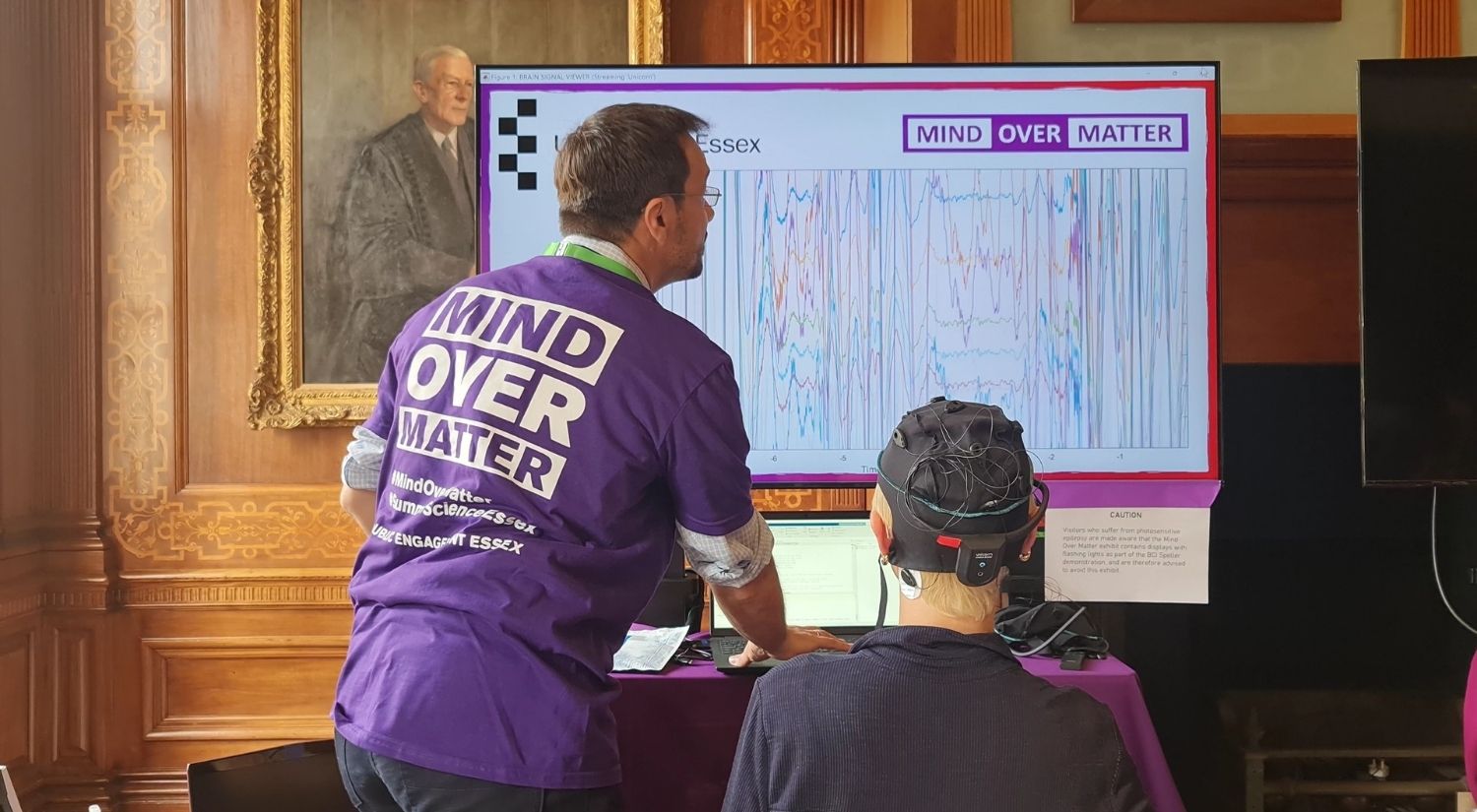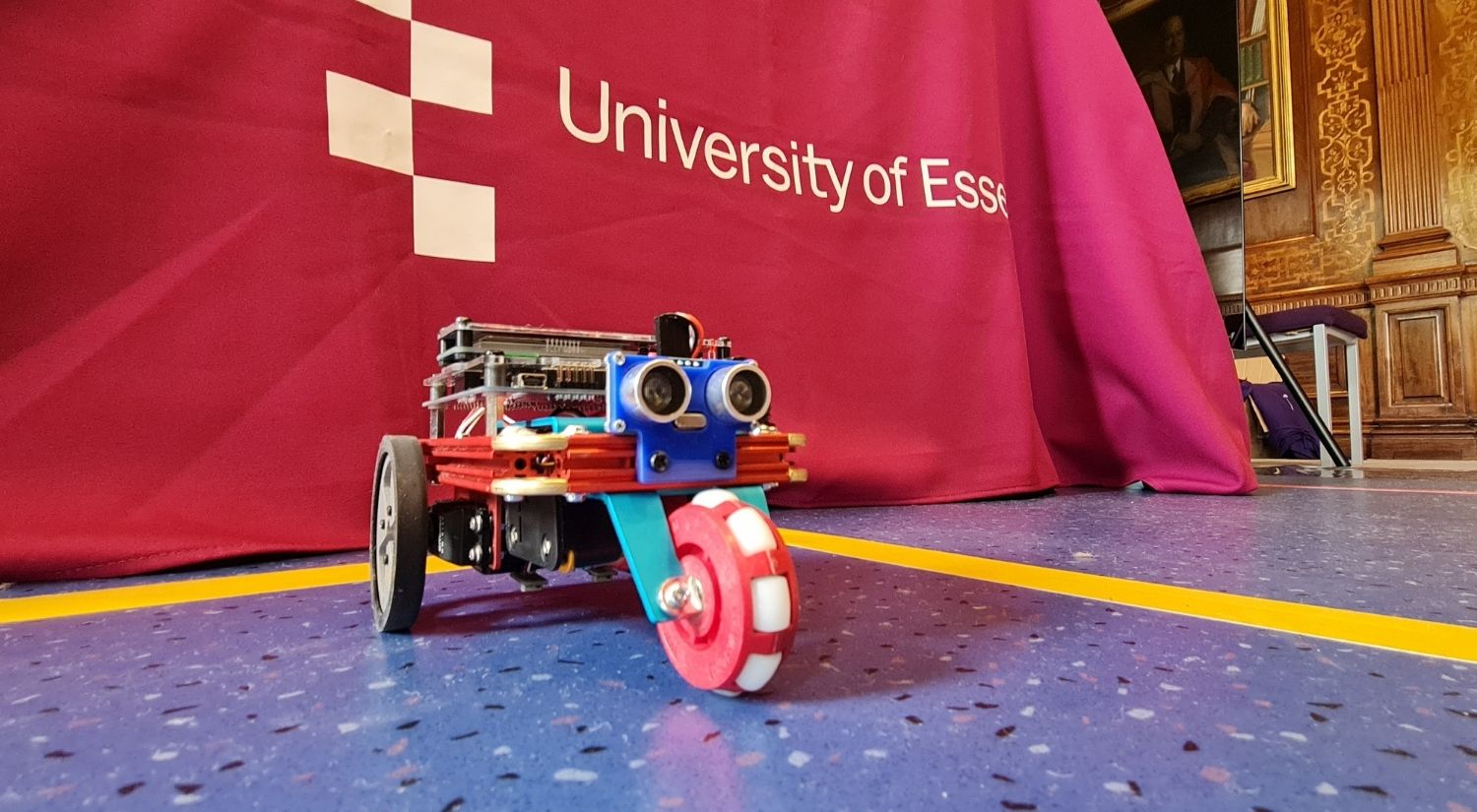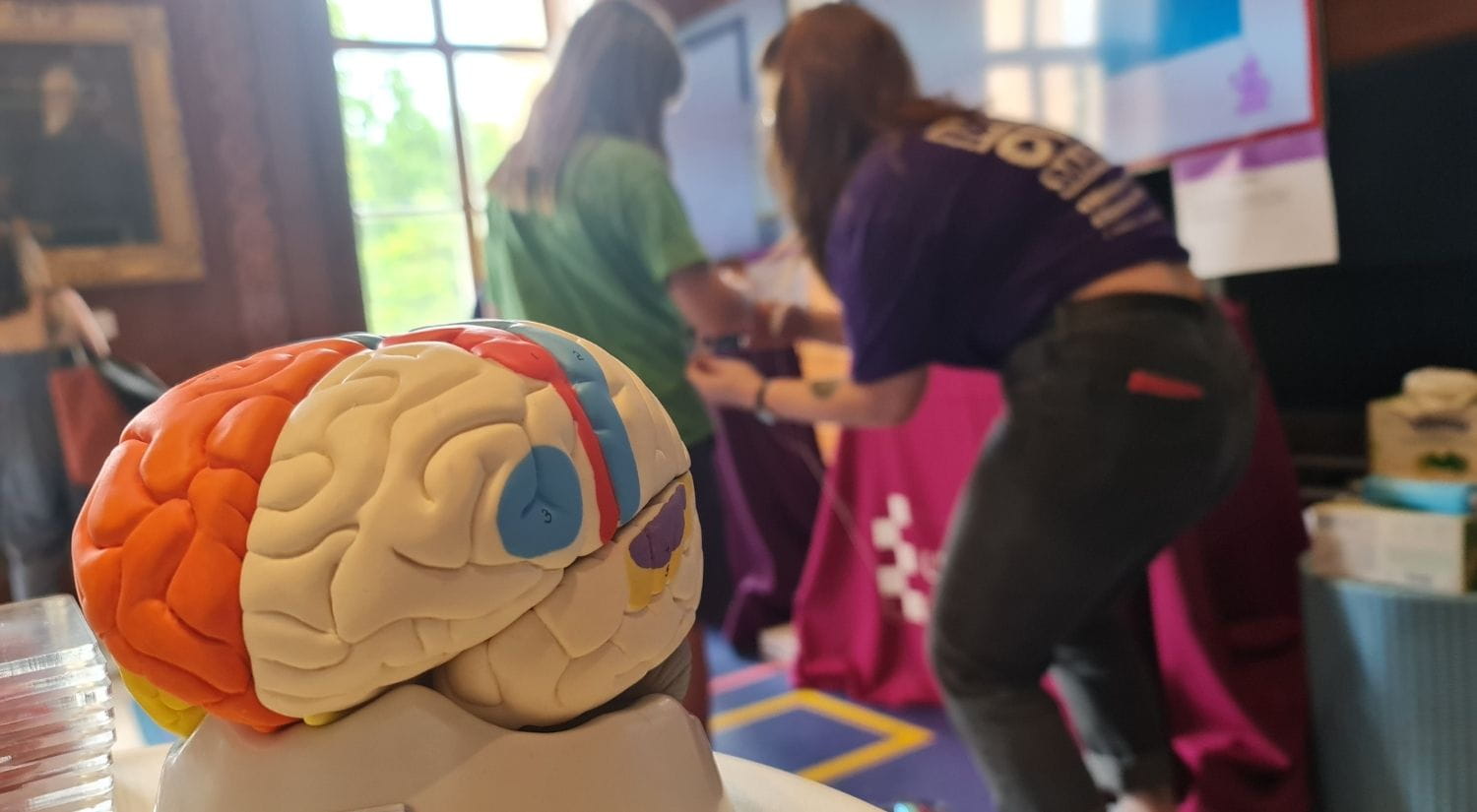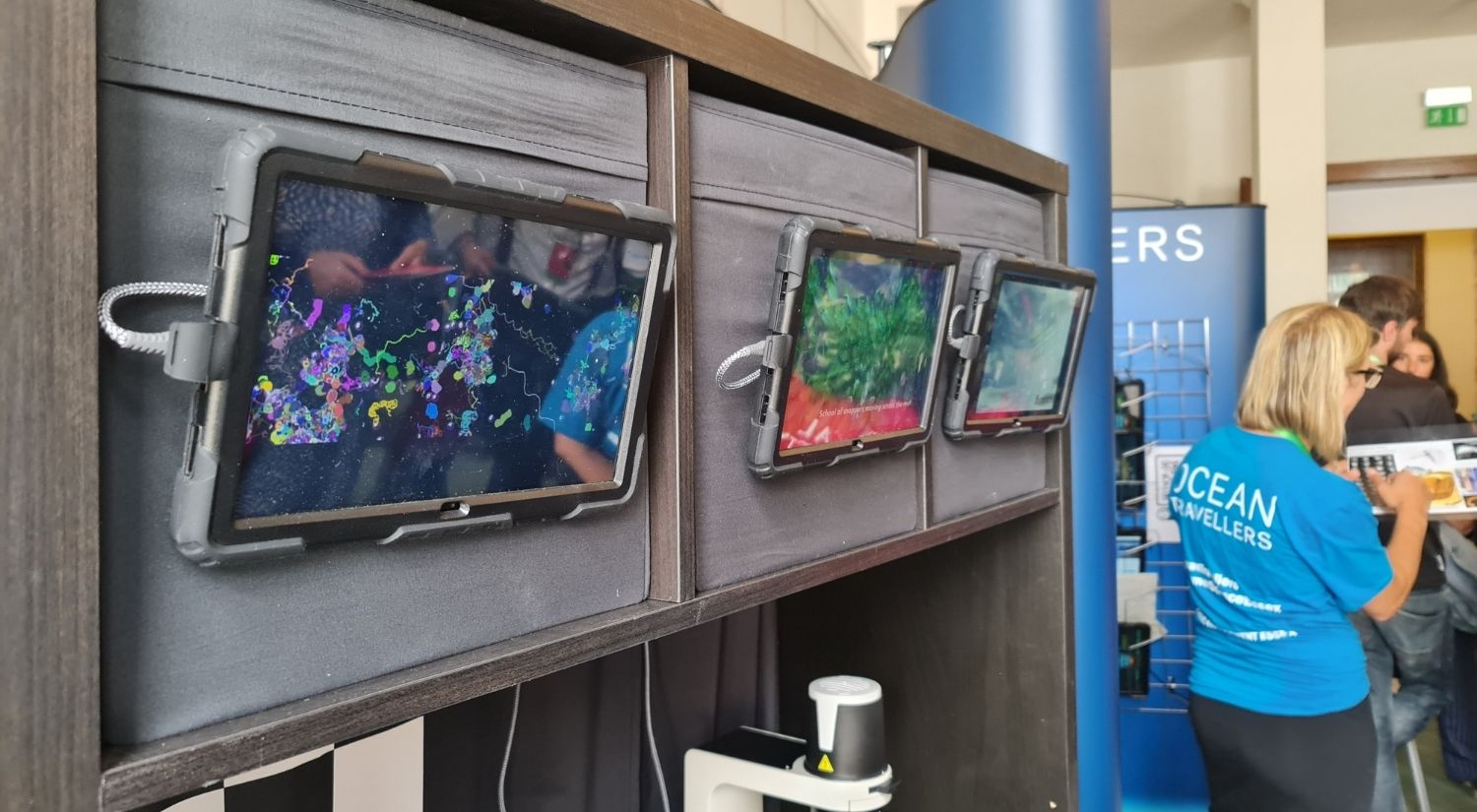Thousands see Essex research in action at Royal Society Summer Science Exhibition
-
Date
Fri 8 Jul 22
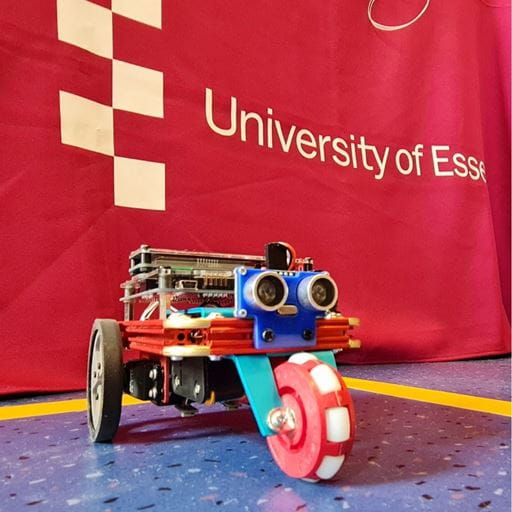
Essex research is being showcased at the Royal Society Summer Exhibition with thousands due to visit.
The Royal Society Summer Science Exhibition 2022 has made its return after two years of COVID-19 delays and the University of Essex is playing a key role in the prestigious event.
Out of the 16 ground-breaking and cutting-edge research projects on display, three are showcasing Essex research that could change lives: reshaping thinking of how human activity devastates our marine ecosystems, how we can utilise the amazing power of the brain and challenge social stereotypes that may not define us as much as we think.
With nearly 800 schoolchildren, adults and fellow industry professionals visiting on the first day of the exhibition alone, thousands of visitors of all ages are expected to take part in the five-day programme of workshops, events and activities.
Dr Anna Sturrock, from the School of Life Sciences, who was part of the team which developed the Ocean Travellers exhibit, said: “It's been wonderful to share our research with so many people at the prestigious Royal Society Summer Science Exhibition.
"We’ve had a huge amount of interest in our work and its real world applications, ranging from reducing biofouling - that currently costs the maritime industry billions of dollars every year - to identifying the critical habitats we need to protect to conserve endangered species.
"Being able to inspire people of all ages, and to share our passion for scientific discovery and marine conservation has been a true privilege.”
The three exhibits featuring Essex research selected for the event are:
Discover values: Smashing stereotypes?
The research team, led by Dr Paul Hanel, from our Department of Psychology, will demonstrate how accurate our perception of differences in human values between groups of people and our perception of actual polarisation in our society actually is.
The exhibit will showcase research showing that people struggle to perceive differences with others accurately. The issue boils down to the difficulty in identifying our own values - abstract ideals people consider to be important guiding principles in their lives - and those of others. For example, how different are voters of the Conservative and the Labour party, women and men, or younger and older people in their values?
Dr Hanel said: “We often hear stories about the differences which divide us, but we have collected data that enables us to make some surprising discoveries about people’s values and the differences between people. Our stereotypes can be accurate in some cases and wrong in others.”
Mind over matter
Led by Professor Reinhold Scherer, from our School of Computer Science and Electronic Engineering, this stand will showcase the research involving brain activity being carried out by our Brain-Computer Interfaces and Neural Engineering Research Group.
The exhibit will showcase Essex’s work on expanding our understanding of brain signals and patterns and translating them into information that can be understood by artificial devices.
Visitors will be able to:
- Control a robot with bioelectrical signals recorded from nerve cells that control muscles in the arm.
- See their brain waves and use a brain-computer interface to play a game.
- Learn about brain anatomy by taking apart and assembling a model of the brain.
Professor Scherer said: “At Essex our Brain-Computer Interfaces and Neural Engineering (BCI-NE) laboratory is one of the largest of its kind in Europe and we are delighted to have been given this opportunity to showcase our research at the Summer Science Exhibition.
“Research into neural engineering technologies for people with and without disabilities is a growing area and we at Essex are proud at being at the forefront of this exciting area of research.”
Ocean Travellers
This research team, led by Dr Nick Aldred for our School of Life Sciences, will showcase the hidden movements of life in the sea by all sizes of organisms – from bacteria and barnacles to salmon and whales – and the importance of this movement to the ecosystem.
Using microscopes and interactive games, the exhibit will showcase leading research at Essex into understanding organism movements and raising awareness of how the human footprint is affecting these important movements.
Dr Aldred said: “Movement is critical for the survival of all things living in the sea – it brings together individuals to breed, feed, protect from predation and cope with the ever-changing environmental conditions.
“We are thrilled to have this opportunity to showcase Essex research into the wonderful hidden world of movement, whilst highlighting the negative impact human activities such as fishing and pollution are having on these valuable ecosystems.”
